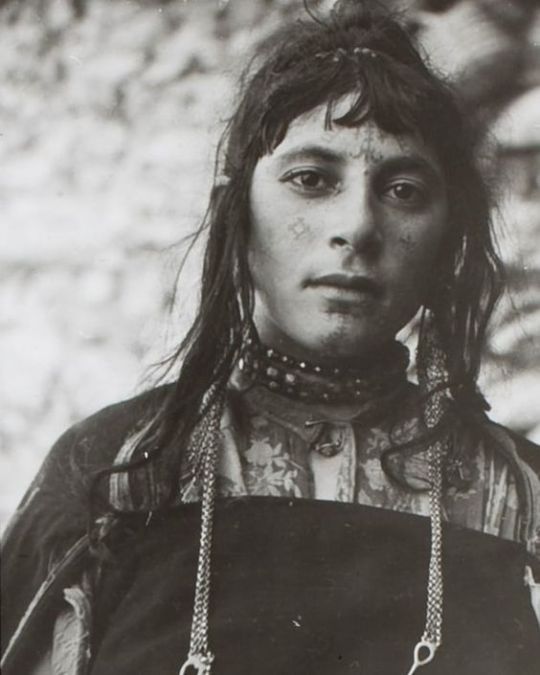#Aurès
Text
Algerian culture Chaoui ⵣ
📍Batna - Algérie 🇩🇿
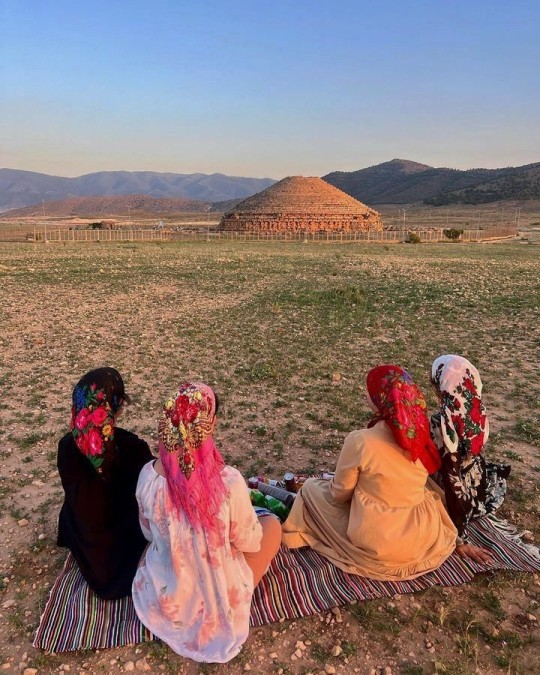
37 notes
·
View notes
Text
Do you think Spadino is like a space nerd or something?
He really seems to like space themed things,he has that moon phases sweater(the one he wears at the beginning of season 2)and that space themed shirt(that he wears at the end of season 2)
That would actually be so cute,he needs hobbies and stuff to like and be passionate about- :')
#alberto spadino anacleti#spadino anacleti#he's a space lover kind of gay#I just think about him and Aurè so often it's absurd#my son--
1 note
·
View note
Text
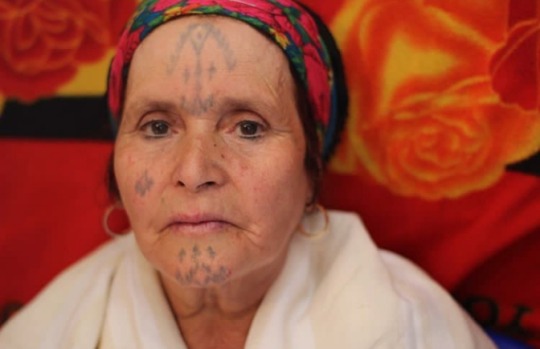
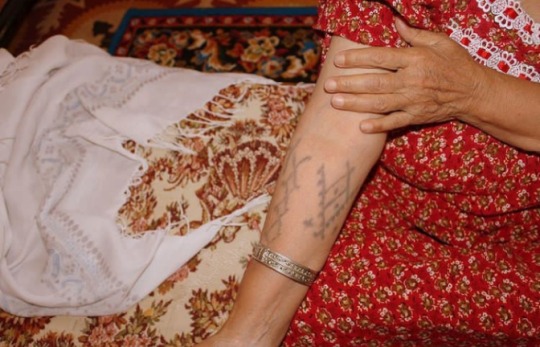
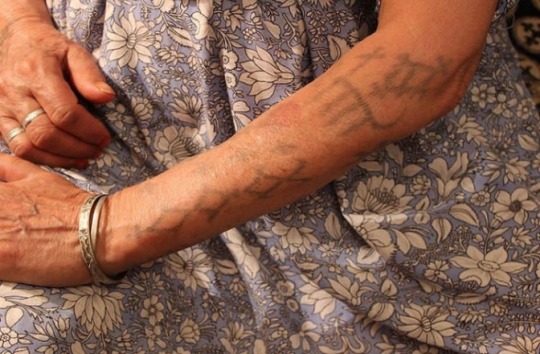
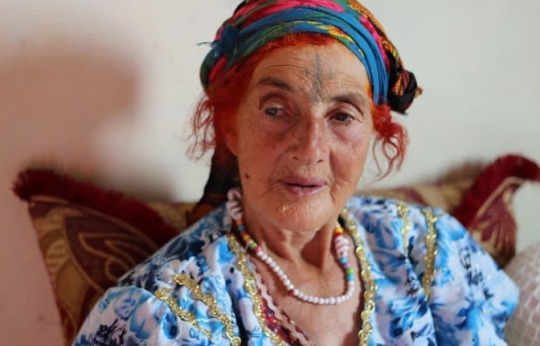

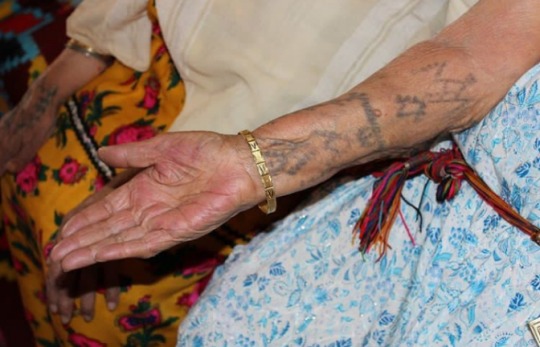
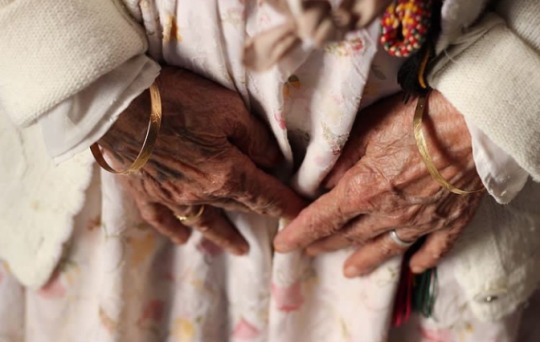
Sepia-tinted photos from over 50 years ago show striking facial tattoos of women from indigenous populations in Algeria. But documentation of these women has faded like the aged photographs. In Algeria today the actual practice of facial tattooing is disappearing along with the older generation. One particular indigenous group losing this cultural marker is the Chaouia of the Aurès Mountains in northeastern Algeria.
This project from Pulitzer Center student fellow Yasmin Bendaas captures incredible portraits and stories from Chaouia women when investigates the origins and disappearance of tattooing, especially with the advent of literacy and Islam's spread. Bendaas' work is available on Amazon for purchase 🇩🇿🇩🇿
— Norfafrica
#my kind of tattoos#dz#algeria#algérie#dzair#amazigh#chaoui#berber tattoos#berber#berberstyle#algérienne#algériemaroctunisie#algerian#culture#berberism
138 notes
·
View notes
Note
angst anon back to redeem my sins!! well kinda👀...
first off, you're soooo right!!! it would slowly kill Spadino to not actually hear the words, especially given their history. it would only feed his insecurities in an endless loop of misery and pining. Aurelia shows his feelings through his actions, but it's never quite enough to quell Spadi's fear of being just some fleeting fancy that will get left behind once again.
and this in turn would of course hurt Aureliano, but he's a stubborn ass, so he'll just Suffer. because he decided he would rather have Spadi alive and hating him than dead and loving him.
so my fanfic writing brain came up with some kind of a solution. at one point the boys get in trouble and Spadi almost dies in Aurelia's arms, which of course prompts this idiota to finally *finally* confess. but since i want them happy, Spadino doesn't die. instead he wakes up in the hospital days later to find Aureliano asleep at his bedside (because you know YOU KNOW he absolutely refused to leave and threatened anyone who tried to make him).
and the first thing Spadi says, high off his ass on morphine? he calls him a moron and gloats about being right. when Aureliano asks wtf he's talking about, Spadi just tells him "see? not a curse. a blessing" before promptly falling asleep and letting Aurelia deal with Emotions™.
so so so sorry for going off like this!!! but this story wouldn't leave me alone and i already have a fic in the works for these two, i cannot afford another. :)))
God YES.
Also the idea of Aurelia threatening some poor doctor is hilarious to me. Like, babygirl, we *know* you're in love. Calm down your boyfriend's fine.
I feel like Spadì would maybe think of it as less of a blessing and more of a curse he'll gladly bare for the rest of his life, because loving this absolute DRAMA QUEEN of a man is so much work lol
Or perhaps a "it's your turn to sit in misery at my bedside, now shut up and kiss me while I'm not dying you moron."
No matter what the theme of the story, Aurelia is so fucking fun to write struggling with his emotions, because the man is so emotionally constipated that he can barely say the words you can see rattling around in his head.
So writing him just finally breaking down, and letting everything he's shoved down in his heart just flood out like a boiling over kettle is so good.
And in that situation I feel perhaps a brush with death is a fun option, not enough that it hospitalizes Spadì, so that Spadino doesn't see it as a big deal, you know? But to Aurè it's EVERYTHING. Because you just know he'd have such a complex about Spadì dying after the whole junkyard thing.
So his true feelings spilling out, maybe starting off angry at Spadino's brush with death and how casual he's being about it? Then turning to the root of the problem which is that Aurelia loves him *so damn much* that he can't imagine living without him?🤌❤️
*then* Spadì gets to gloat a little, once our boy has let it all out and he's admitted it. Then Spadì gets to kiss his head and be like "you fucking *idiot*"
8 notes
·
View notes
Video
youtube
Les citations de Taha-Hassine FERHAT. " Batna Capitale des Aurès " Parol...
0 notes
Text
Al-Kahina: An Enduring Symbol of Amazigh/Berber Resistance and Empowerment
Al-Kahina, also known as Dihya, holds a significant place in history as a remarkable Amazigh/Berber queen and an influential leader of the Aurès region. Her legacy is marked by her brave resistance against the Muslim conquest of the Maghreb during the 7th century.
Born in the early 7th century AD in modern-day Algeria, Al-Kahina’s leadership and strategic prowess were evident as she fiercely…
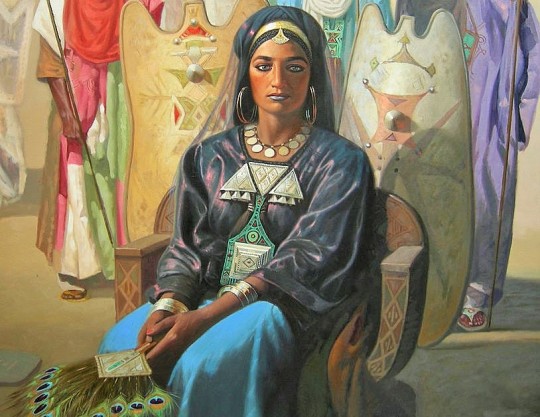
View On WordPress
#African History#Al-Kahina#Amazigh history#Berber history#history#North African Historical Figure#North African History
0 notes
Text
"Universally, poetry of resistance is consciously committed to the global revolution as this revolution is, ultimately, the context that the local revolutionary movement grows within, influences, and is influenced by.
The resistance literature we have in our hands draws our attention to the remarkable quantity and quality of productions chanting for the revolutions of the world and their common causes for freedom. This poem by Mahmoud Darwish titled “Cuban Anthems” expresses the essence of this commitment and its significance:
I touched neither the sugar cane
Nor the green land
I did not ride a fisherman’s boat in the Caribbean
I did not splash a drop of water
I did not stay at a hotel for tourists and strangers
I did not get drunk in Havana on the sweat of the poor
I did not dip my pen in the wound of the wretched and miserable
I did not read Cuban poetry
But I have of Cuba things and more
For the words of revolution are light
Read in all languages
And the eyes of the revolution are a sun
That rains in all weddings
And the anthem of the revolution is a melody
Known by all bells
And the flag in Cuba
Is held by the revolutionary in the Aurès
And the roots of revolution, no matter how many branches they grow
They sprout from the same barricade
And the blue, red, and green flame
Sparks from the same anger
So keep warm…
And kindle another fire
O you people who feel cold.
When we said that the different dimensions of a resistance literary work coalesce strongly around one central axis, which is the axis of the writer’s own resistance, we were actually summarising this poem in one sentence."
1 note
·
View note
Text
Research | The Amazigh People
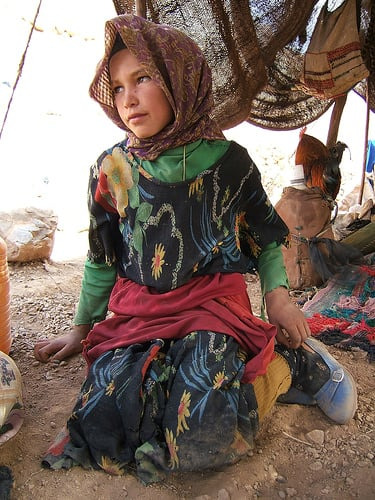
Berber Girl in Morocco (2006) - New World Encyclopedia
Before getting into previsualisation and character writing, I wanted to properly understand the culture of the people that would live in this story. In my research of the Atlas Mountains and Moroccan culture, I came across the Berbers.
The Berbers (Imazighen, singular Amazigh) are an ethnic group indigenous to Northwest Africa, speaking the Berber languages of the Afroasiatic family. Originally, Berber was a generic name given by the Romans to numerous heterogeneous ethnic groups that shared similar cultural, political, and economic practices. It was not a term originated by the group itself.
Historically, it is not clear how the name "Berber" evolved, although it is supposed to be from the word "barbarian," applied by Romans to many peoples. The variation is a French one when spelled Berbere and English when spelled "Berber." Both names, "Amazigh" and "Berber," are relatively recent names in historical sources, since the name "Berber" appeared first in Arab-Islamic sources, and the name "Amazigh" was never used in ancient sources. It is no less important to keep in mind that the Berbers were known by various names in different periods (New World Encyclopedia, n.d.).
The two largest populations of Berbers are found in Algeria and Morocco, where large portions of the population are descended from Berbers but only some of them identify as Amazigh. Roughly one-fourth of the population in Algeria is estimated to be Berber, while Berbers are estimated to make up more than three-fifths of the population in Morocco. In the Sahara of southern Algeria and of Libya, Mali, and Niger, the Berber Tuareg number more than two million. By the beginning of the 20th century, the Berber world had been reduced to enclaves of varying size. In Tripolitania and southern Tunisia those were chiefly formed by the hills of the Nafūsah Plateau and the island of Jerba, in eastern Algeria by the mountains of the Aurès and Kabylie, and in Morocco by the ranges of the Rif, the Middle and High Atlas, the Anti-Atlas, and the Saharan Atlas (Brett, 2019).
Berbers are mainly Sunni Muslim, but there are many traditional practices found among them. Since Berbers typically outnumber Arabs in rural areas, traditional practices tend to predominate there. The Berbers converted to Islam slowly, over the course of centuries, and was not dominant until the sixteenth century. The result is that within Berber Islam are preserved traces of former religious practices, making it a somewhat atypical sect.
During the time of the Barbary pirates, slaves and war prisoners from Europe were transported and sold into North Africa. Estimates place possibly one million Europeans arriving in Africa this way, bringing with them green and blue eyes and blond and red hair. As intermarriage took place with the resident North Africans, these features became incorporated into today's Berber population (New World Encyclopedia, n.d.).
Knowing all this is key in creating my main character, I need to consider the influence of their culture and how that impacts their personality, wishes and goals. Furthermore, it adds more flavour to the colonial aspect of the story for this book.
References
Brett, M. (2019). Berber | Definition, People, Languages, & Facts | Britannica. In: Encyclopædia Britannica. [online] Available at: https://www.britannica.com/topic/Berber.
New World Encyclopedia (n.d.). Berber - New World Encyclopedia. [online] www.newworldencyclopedia.org. Available at: https://www.newworldencyclopedia.org/entry/Berber [Accessed 5 Feb. 2024].
0 notes
Text
Timgad , Batna Aurès - Algérie 🇩🇿
🎥: noellegeroudet
14 notes
·
View notes
Text
Empêchez ces sauvages - Sattar Sason - Bookmundo
Voici tous les mots clefs du roman "Empêchez ces sauvages". Bonne lecture. Anticipation, effondrement, effondrement de l’occident, renaissance africaine, Afrique, France, impérialisme, impérialisme américain, Équilibre avec les écosystèmes, solutions alternatives, organisation internationale alternative, monde alternatif, nouvelle organisation internationale, solutions locales pour un désordre global, solutions locales, domination des pays du Nord, domination, roman géopolitique, racisme, épuisement des ressources, loi de l’entropie, Kalundborg, Scandinavie, Europe, Train magnétique, nature, équité sociale, transition sociale, transition écologique, aventure géographique, géopolitique, critique coloniale, critique néocoloniale, Algérie, Territoires locaux, Aurès, Babar, Khenchela, territoires locaux, Fusion nucléaire, Gouvernance partagée, Dystopie, Utopie, Roman de voyage. 720link
0 notes
Text
ARGÉLIA
Encontro dos 6 Líderes Históricos: Unificando as Fileiras para Desencadear a Maior Revolução Contemporânea
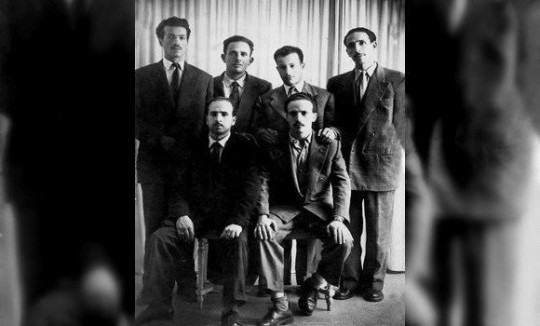
Argel - Há 69 anos, realizou-se em Argel o Encontro dos Seis Líderes Históricos, o último de uma série de encontros organizados por um grupo de jovens do Movimento Nacional que decidiram unificar as fileiras, pondo de lado as suas divergências, para desencadear a maior Revolução da história contemporânea.
A decisão de recorrer à luta armada para libertar o país do jugo colonial não foi fácil de tomar porque a sua implementação no terreno foi complicada, mas a coragem e a genialidade de um grupo de jovens argelinos nacionalistas, dedicados e determinados tornaram possível a eclosão de uma gloriosa Revolução contra uma das maiores potências coloniais.
Os seis líderes queriam que esta Revolução fosse popular, sem comando individual ou liderança partidária, com o lema "Pelo povo e para o povo". Uma revolução liderada politicamente pela Frente de Libertação Nacional (FLN) e militarmente pelo Exército de Libertação Nacional (ALN).
O trabalho iniciado há muito tempo pelos jovens do Movimento Nacional foi coroado em 23 de outubro de 1954, pelo encontro decisivo das seis lideranças históricas. Com efeito, nessa data, Mohamed Boudiaf, Larbi Ben M'hidi, Mostefa Ben Boulaïd, Krim Belkacem, Didouche Mourad e Rabah Bitat reuniram-se discretamente na casa de Mujahid Mourad Boukechoura, em Rais Hamidou (Argel), para traçar os contornos da Guerra de Libertação Nacional, que ancorou os princípios da luta do povo argelino e fez da sua unidade um imperativo para alcançar o objectivo supremo: a emancipação do jugo colonial e a recuperação da liberdade e da independência.
Vários pontos importantes estiveram na agenda desta reunião dos seis líderes históricos, incluindo a escolha da data, hora e slogan para a eclosão da guerra de libertação em todo o território, a elaboração da Declaração de 1º de novembro, o mapa militar localizando os locais de destacamento das forças francesas e a adoção da descentralização na gestão dos assuntos da Revolução. priorizando o interior em detrimento do exterior.
Uma das decisões tomadas nesta reunião foi a divisão da Argélia em cinco zonas: Aurès (Mostefa Ben Boulaïd), o Norte Constantino (Didouche Mourad), a Cabília (Krim Belkacem), o Centro (Rabah Bitat) e o Oeste (Larbi Ben M'hidi).
Após a reunião, Mohamed Boudiaf foi ao Cairo para informar os membros da delegação externa dos resultados da reunião e transmitir a Declaração de 1º de novembro nas ondas de rádio do "Sawt El Arab".
Entre as decisões tomadas na reunião estava também a nomeação da nova organização que substituiria o Comitê Revolucionário de Unidade e Ação (CRUA), ou seja, a Frente de Libertação Nacional (FLN), e seu braço armado, o Exército de Libertação Nacional (ALN).
Antes do Encontro dos Seis Líderes Históricos, o Grupo Histórico dos 22 realizou uma reunião em 24 de junho de 1954 na casa do militante Lyès Derriche em El Madania (Argel), sob a liderança de Mostefa Ben Boulaïd, que marcou um ponto de virada decisivo na preparação da Revolução Nacional.
original em francês:
Réunion des 6 chefs historiques: l'unification des rangs pour déclencher la plus grande Révolution contemporaine (aps.dz)
0 notes
Text
0 notes
Text
Visite en territoire non reconnu
Georges Feltin-Tracol
Les vacances estivales approchent avec son duel annuel entre les vacanciers du mois de juillet et ceux du mois d’août. N’entrons pas dans ce dilemme cornélien. Délaissons plutôt les destinations convenues de Tahiti, de l’Amérique du Nord, de la Costa Brava, de la Croatie, de la Côte d’Azur ou des Aurès. Choisissons l’exotisme, détournons-nous de l’ancienne Seine –…
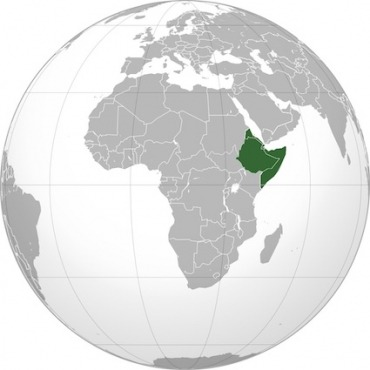
View On WordPress
0 notes
Audio
Écouter / acheter: Aurès 1954 de Shitao
0 notes
Video
youtube
Les citations de Taha-Hassine FERHAT : Poème "Batna, capitale des Aurès"
0 notes
